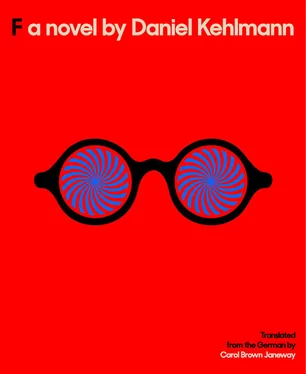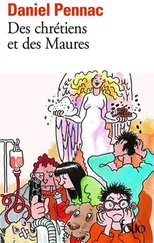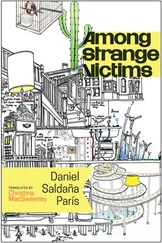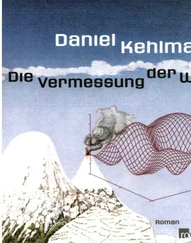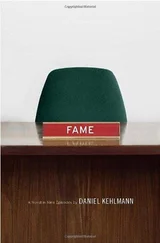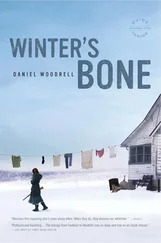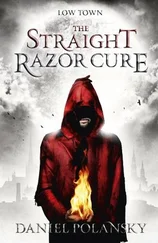“You don’t have to lie.”
“Very impressive!”
Then he said, “Not big enough,” and it took me a moment to realize he was talking about the schnitzel. Too expensive, given the size. But everything was expensive these days, the little man was always being ripped off.
I asked if the schnitzel tasted good, at least.
Too thick, he said. Schnitzels should be pounded thin, why did nobody understand this anymore? He hesitated before asking where my tape recorder was.
“I have a good memory.”
Memory was an overvalued phenomenon, he said as he chewed. Simply astonishing how easy it was to seed it with false recollections, and how easy to erase other recollections without a trace. No tape recorder, really?
To change the subject, I offered him dessert, and he ordered Sachertorte. Then he cocked his head and inquired if the Oxford Quarterly was a student newspaper.
“It’s widely read.”
“And what are you studying, young man?”
“Art history. But I’m a painter.”
He looked at the table. “Have we met before?”
“I don’t think so.”
“No?”
“I wouldn’t know where.”
“Painter,” he repeated.
I nodded.
“Painter.” He smiled.
I asked him how great an influence a hypnotist could have on people. Could you cause someone to change his life? To do things he’d never have done without being hypnotized?
“Anyone can make someone change their life.”
“But you can’t make people do things they don’t want to do?”
He shrugged. Just between the two of us, what did “want to” really amount to? Who knew what he actually wanted, who was that clear with himself? People wanted so much, and it changed all the time. Of course at the beginning you told the audience that nobody could be made to do anything he wasn’t willing to do anyway, but the truth was that everyone was capable of everything. Humans had no boundaries, they were pure chaos, they had no fixed shape, and they had no limits. He looked around. Why in heaven’s name was the Sachertorte taking so long, what were they doing, baking it?
I’m not just chaos without boundaries, I said.
He laughed.
The waitress brought the dessert, and I asked him to tell me some anecdotes. In such an illustrious career he must have had quite a few experiences.
Illustrious? Well. In olden times, in the heyday of the Varieties, of Houdini and Hanussen, a hypnotist could still be illustrious. But nowadays! A life lived for art did not easily reduce itself to anecdotes.
“Hypnosis is an art?”
Perhaps it was even more. Perhaps it already achieved what art could only aim at. All great literature, all music, all … he smiled. All painting was trying to be hypnotic, wasn’t it? He pushed his plate away. He had to go to bed now, performances were a strain, they left you ready to collapse with exhaustion. He stood up and put his hand on my shoulder. “Painter?”
“Excuse me?”
His expression had changed, there was nothing friendly in it anymore. “Painter? Really?”
“I don’t understand.”
“Doesn’t matter. Not important. But are you serious? Painter? ”
I asked what he meant.
Nothing. He was tired. He had to lie down. He looked around as if he’d just thought of something, then he murmured something I couldn’t make out. He looked small and puny, pale-faced, and his eyes were invisible behind the thick lenses. He raised a hand in farewell and walked with little steps toward the door.
It was only on the ferry across the English Channel that I realized I couldn’t get his voice out of my head. Painter, really? Never had I encountered such disbelief, never such intense skepticism and mockery.
Shortly afterward, back in Oxford, he appeared to me so clearly in a dream that even today I feel I actually met him three times. Once again it was in a theater canteen, but in my dream this one was as big as a cathedral. Lindemann was standing on the table, and his smile was twisted into such a grimace that I could barely look at him.
“I forget nothing.” He sniggered. “Not a single face and not a single person who was ever on the stage with me. Did you really think I wouldn’t know anymore? Poor child. And you think you’ve got it in you? Art. Painting. The creative power? Do you really believe that?”
I took a step back, half angry and half fearful, but I couldn’t reply. His smile grew larger and larger until it filled my field of vision.
“You can do the essentials, but you’re empty. Hollow.” He gave a sharp, high-pitched snigger. “Go now. Go without peace. Go and create nothing. Go!”
When I came to, I was lying in half darkness in my bedroom and couldn’t understand what had terrified me so much. I pushed back the covers. Underneath, rolled up into a human ball, glasses glinting, Lindemann was cowering. And as he sniggered, I woke a second time, in the same room, and pushed the covers back with a pounding heart, but this time I was alone and I really was awake.
He was right. I knew. I’d never be a painter.
Now I remember his name, it’s Sebastian Zollner. I ask him where he’s headed. Not that it interests me, but if you know someone tangentially and find yourself sitting next to them in the subway, you have to have something to chat about.
“To Malinovski. In his studio.”
“Who’s Malinovski?”
“Yes, quite! Exactly! Who is he indeed! But Circle magazine is doing a story on him, and when it appears, Art Monthly will immediately do one too, and that same day my boss will call me in and ask why we’ve missed the boat again. So I’m taking the first step.”
“And if Circle magazine doesn’t?”
“They’ll certainly do something, because I will have done it already. And I’m going to write that it’s a disgrace if someone like Malinovski doesn’t get the attention he deserves. And that when it comes to us, sheer noise always triumphs over quality. That’s what I’m going to say, not bad, huh? Noise over quality. Not bad! That’ll make Humpner at Art Monthly really shit in his pants, and they’ll follow up right away, and I’m already established as the man who discovered Malinovski. That’s the advantage of writing for a daily paper instead of a magazine with a two-month lead time. You can figure out what they’re planning, and you can beat them.”
“What kind of artist is he?”
“Who?”
“Malinovski.”
“No idea. That’s why I’m going there. To find out.”
He sits there beside me, all bloated, unshaved, almost totally bald, his jacket so crumpled he looks as if he’s slept in it. In the Middle Ages, a person’s appearance mirrored their soul: evil people were ugly, good people beautiful. The nineteenth century taught us that this is nonsense. But all it takes is a little life experience and you realize it’s not so wrong.
“Did you go to the Khevenhüller opening?” he asks.
I shake my head. And because I read the papers too, I know with absolute certainty that now he’s going to say that Khevenhüller has done nothing but repeat himself for a long time now.
“He doesn’t do anything new anymore. Always the same, rehash after rehash. Between ’90 and ’98 he was original. He had something to say. Now it’s older than old hat.”
The train stops, the doors open, and a group of Japanese tourists pours in, about thirty of them, half of them wearing protective face masks. Silently squeezed together they fill the entire carriage.
Zollner leans over to me. “I wish I had your job.”
“You can have it,” I say in a drawl. “You’d be good at it.”
He turns away again, so self-absorbed that he doesn’t notice I’m being dishonest. “In fifteen years I’ll be jobless. No more newspapers. Only on the net. And I’m not even fifty. Too young to retire. Too old to change horses.”
Читать дальше
